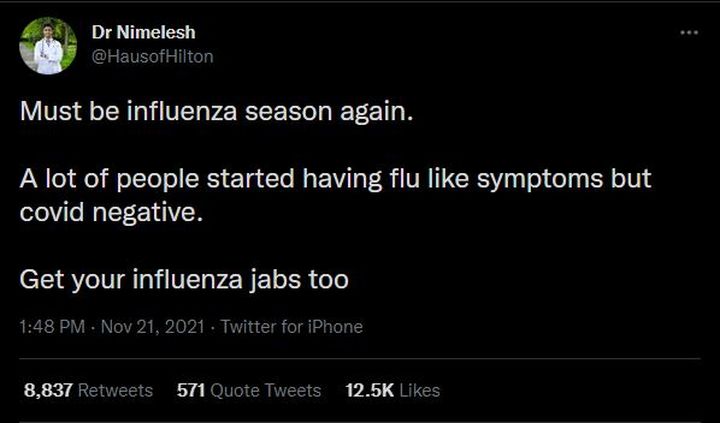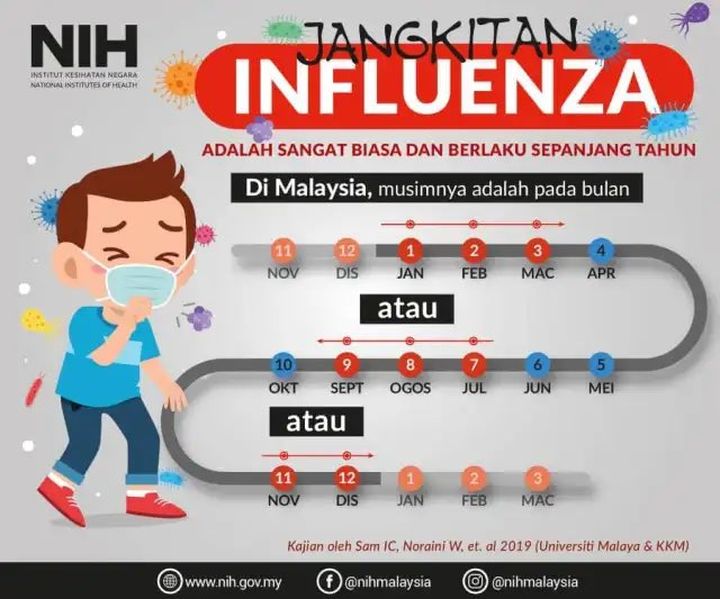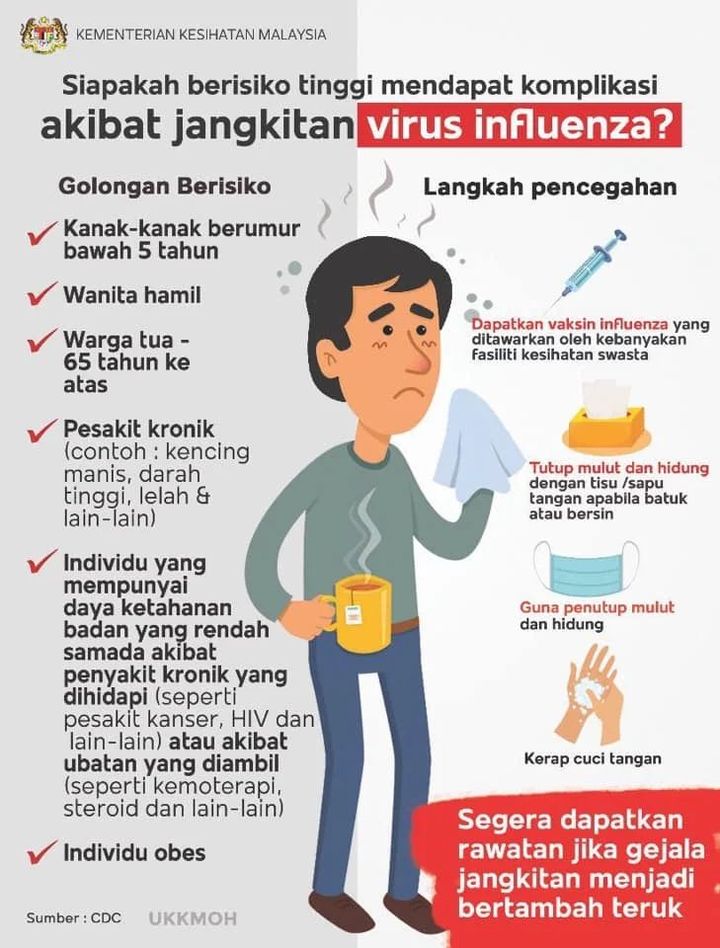Feeling Sick? It Might Not Be Covid-19, But Influenza Instead
A lot of people are getting sick, but it’s not Covid-19. What is it?

Subscribe to our Telegram channel for the latest stories and updates.
Nowadays, when anyone exhibits flu-like symptoms, people panic over the possibility of Covid-19. Yet, when tested, they are not actually Covid-19 positive. So what could it be?
Twitter user Dr. Nimelesh reminded all Malaysians that it’s flu season, so we had better get our influenza jab.

Credit: @HauseofHilton / Twitter
Currently, people are only getting Covid-19 vaccines, but Dr. Nimalesh suggests also getting your influenza vaccines as they are different viruses and have different ways to be tackled upon.
The Influenza Season
Influenza is an acute contagious viral respiratory disease characterized by fever, cough, sore throat, headache, myalgia (muscle aches/pain), prostration (fatigue), and coryza (inflammation of the mucous membrane).
It can be further categorized into three types, A, B, and C. Influenza A and B viruses cause epidemic disease while the latter usually causes a mild, cold-like illness.
In Malaysia, influenza A is more commonly detected than influenza B.
Usually, people can mistake a common cold for the flu as the symptoms overlap. In general, the flu is much worse than the common cold as the symptoms of flu are tenser, begin more abruptly, and can further cause serious health problems.
(Find out more about the similarities and differences of these here)
As a tropical region, flu epidemics happen every year in Malaysia and we do have peaks for when the most cases are detected throughout the year.
According to the infographic shared by Dr. Nimalesh on his Twitter thread, influenza infections are very common and the seasonal peaks are around January-March, July-September, and November-December.

Credit: @HauseofHilton / Twitter
Those who are at high risk to get complications for these viruses include:
- Children under 5 years old
- Pregnant women
- Elderly people above 65 years old
- People with chronic diseases such as diabetes, hypertension, asthma, etc.
- People with low immunity either caused by chronic diseases (cancer, HIV, etc) or medications taken (chemotherapy, steroids, etc)
- Obese individuals

Credit: @HauseofHilton / Twitter
What are the steps to avoid influenza? When they exhibit similar symptoms as Covid-19, the ways of prevention are basically the same. Glad we’re all accustomed to these. But still, to reiterate:
- Get your influenza vaccines offered by most private health facilities
- Cover your mouth and nose with a tissue/handkerchief when sneezing or coughing
- Use facemasks to protect yourselves and others
- Always wash your hands or use a hand sanitizer
How to get the Influenza Jab
Influenza vaccines should be taken annually as viruses in nature, tend to mutate with time.
Hence, that’s why some people deemed it to be unnecessary as they are hesitant to commit.
Others might just mistake the symptoms to be a nasty cold and prefer to be treated with a bit of rest and paracetamol instead of spending money on unnecessary jabs.
However, ignorance can bring about more complications, at least for those high-risk groups.
Especially for children less than 5, they are at high risk of getting the flu and spreading it to other kids at their nursery, daycare, or to their babysitter. They could be mini super flu spreaders for all we know.
The influenza vaccine works by priming our immune system. It prepares the antibodies before the real attack begins.
You can get yourselves or your loved ones to be vaccinated at your local healthcare clinics. Usually, the vaccines are priced in between RM50-RM100. But some places differ according to their charges and types of vaccine. Do consult your healthcare provider first.
Share your thoughts with us on TRP’s Facebook, Twitter, and Instagram.





